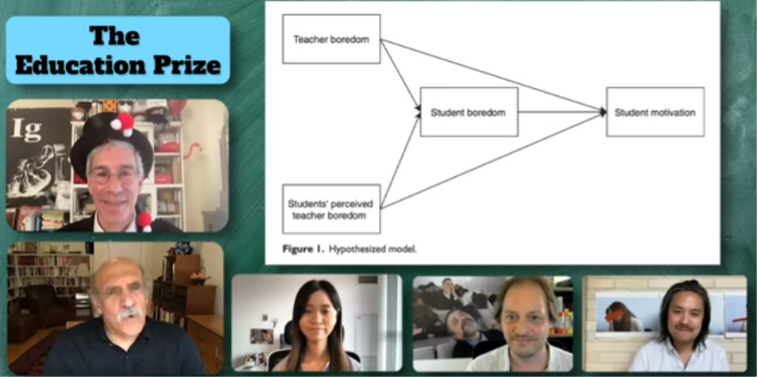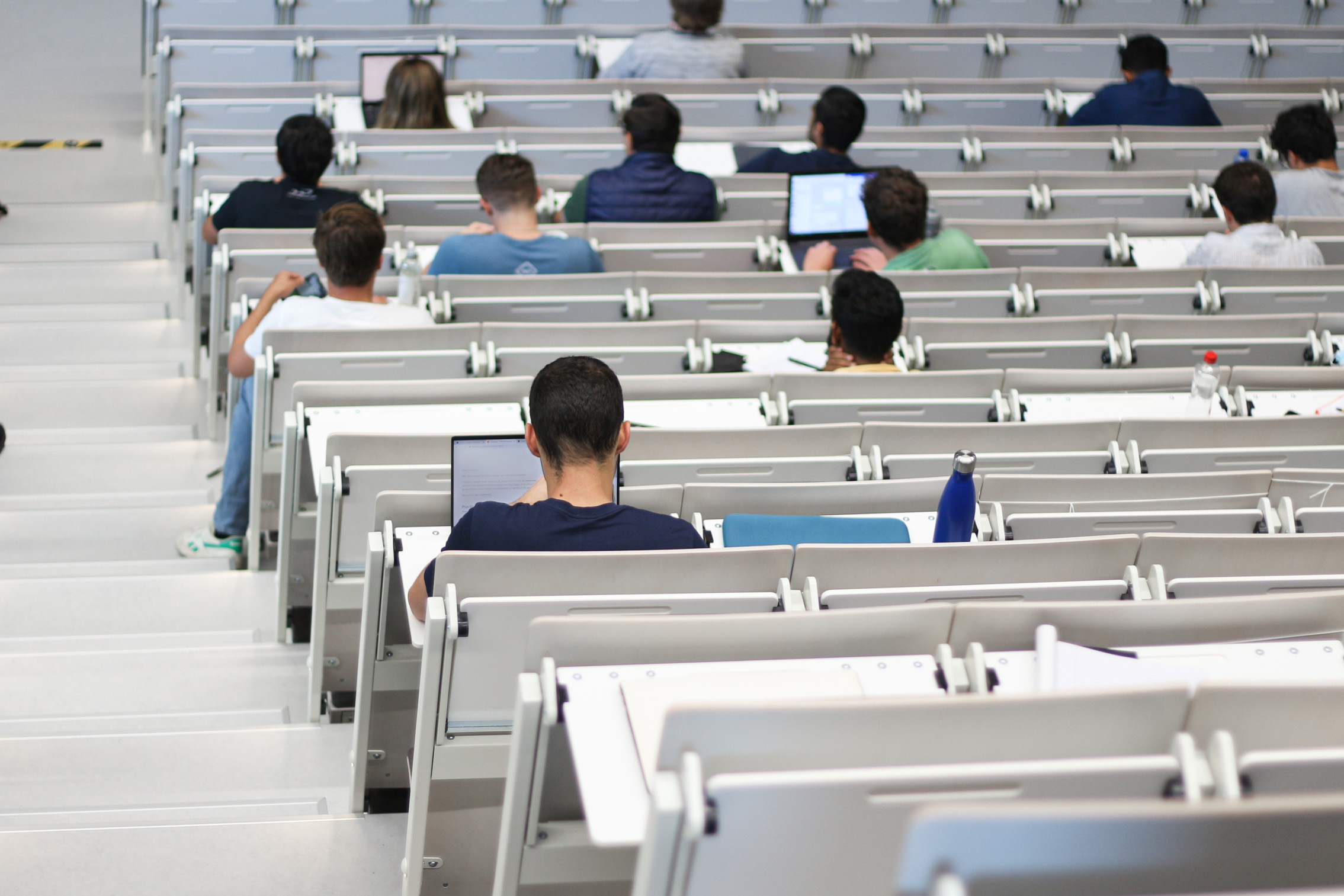Are you expecting a lecture to be boring? Then you are more likely to experience boredom, according to researchers who were awarded the Ig Nobel Prize in Education.
If students think they will get bored, does this indeed happen more often? (Photo: Justyna Botor)
The 33rd Annual Ig Nobel Prize Ceremony was held last week. Dutch psychologist Wijnand van Tilburg was part of the winning research team. The Ig Nobel Prizes celebrate studies that first make people laugh, and then make them think. The awards are a light-hearted parody of the Nobel Prizes.
This year’s award-winning weird and wonderful research included a study by a geologist on eating fossils and research by a team of scientists to determine how electrified chopsticks and drinking straws can change the taste of food. The Ig Nobel Prize for Medicine went to a study that counted the number of nostril hairs in human cadavers: is the number the same in each nostril?
The ceremony was once again an online webcast and opened with a video scene at a canal in the Netherlands. There, Keira Lee Rice, PhD biologist and biotechnologist at Leyden Labs, explained that during the award ceremony, you could do anything you liked: shout down your phone, eat something… no one would mind. “Now, get your paper aeroplanes ready.” Throwing paper aeroplanes is a tradition at the Ig Nobel Prizes ceremony.
The Education Prize was scooped by a team including Dutch researcher Wijnand van Tilburg, who actually studied in Tilburg and obtained his PhD in Ireland with a study on boredom. He is now employed at the University of Essex in the UK.
Among other things, the researchers studied a self-fulfilling prophecy: if students expect to be bored, is that sufficient to exacerbate its subsequent occurrence? The answer is yes. They also wanted to find out what happens when students perceive that their lecturer is bored. The results indicate that this promotes students’ own feeling of boredom and causes them to have lower learning motivation.
The prize was handed to Van Tilburg and his colleagues virtually by Nobel laureate Martin Chalfie, the 2008 winner of the real Nobel Prize in Chemistry. He joked that he read the first couple of sentences of the two award-winning papers with great interest, but then found it hard to get through to the end.

The award presentation. Below left: Chalfie. Second from right: Van Tilburg.
It is worth noting that boredom is not always a bad thing, as Van Tilburg explained to (in Dutch) the Univers university magazine early in the corona pandemic: people who are bored are keen to do something meaningful and are more willing to help others.
HOP, Bas Belleman / Translation: Taalcentrum-VU
Do you have a question or comment about this article?
redactie@hogeronderwijspersbureau.nl


Comments are closed.